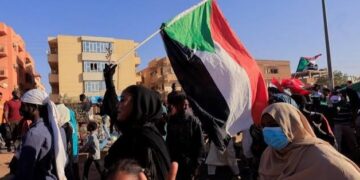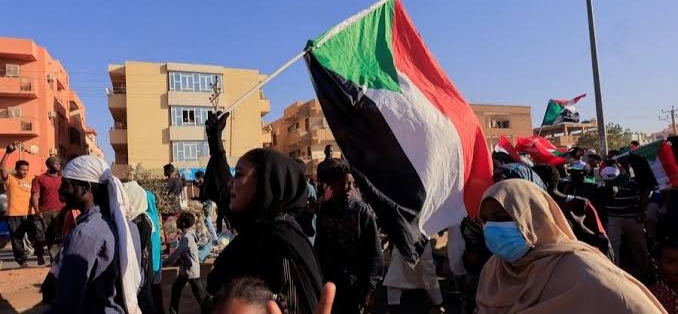By John Ikani
Sudanese authorities closed two of the Nile bridges in the capital Khartoum on Tuesday and brought in shipping containers to seal off other bridges in anticipation of mass protest planned on Wednesday demanding an end to military rule.
Activists hope the planned mass rallies on Wednesday will weaken the grip of the military. They have dubbed them “earthquake demonstrations”.
But the authorities appear to be a step ahead of the protesters by taking measures to restrict the movement of the crowds.
Asides blocking the Nile bridges, the military HQ has been fenced off with a five-metre high parameter wall.
Several other bridges are expected to be closed on the day. Activists say that a telecom and internet black out are also expected.
In other measures, the authorities have announced the closure of schools on Wednesday, in the hope this will deter young people from taking part in the rallies.
Security has also been shored up around some of the meeting points announced by organisers of pro-democracy groups, witnesses said.
These include the Republican Palace in central Khartoum, the nearby army headquarters, the parliament in the sister city of Omdurman, and the barracks of the armoured corps south-west of the city.
The rallies planned on Wednesday will be the latest in near-daily protests against military rule since army chief Gen Abdel Fattah Al Burhan seized power last October, a move that derailed the country’s democratic transition and led to an economic crisis.
Since then, security forces have dealt violently with the rallies, killing more than 90 protesters and injuring about 3,000.
Gen Al Burhan last week threatened to expel the UN special representative in Sudan, accusing him of overstepping his mandate.
He has said he will only hand over power to an elected government, suggested that the pro-democracy movement was a tool in the hands of Sudan’s foreign “enemies”, and equated with treason any opposition to military rule.
His second-in-command, paramilitary commander Gen Mohamed Hamdan Dagalo, has accused antimilitary activists of being agents on the payroll of foreign embassies.




































